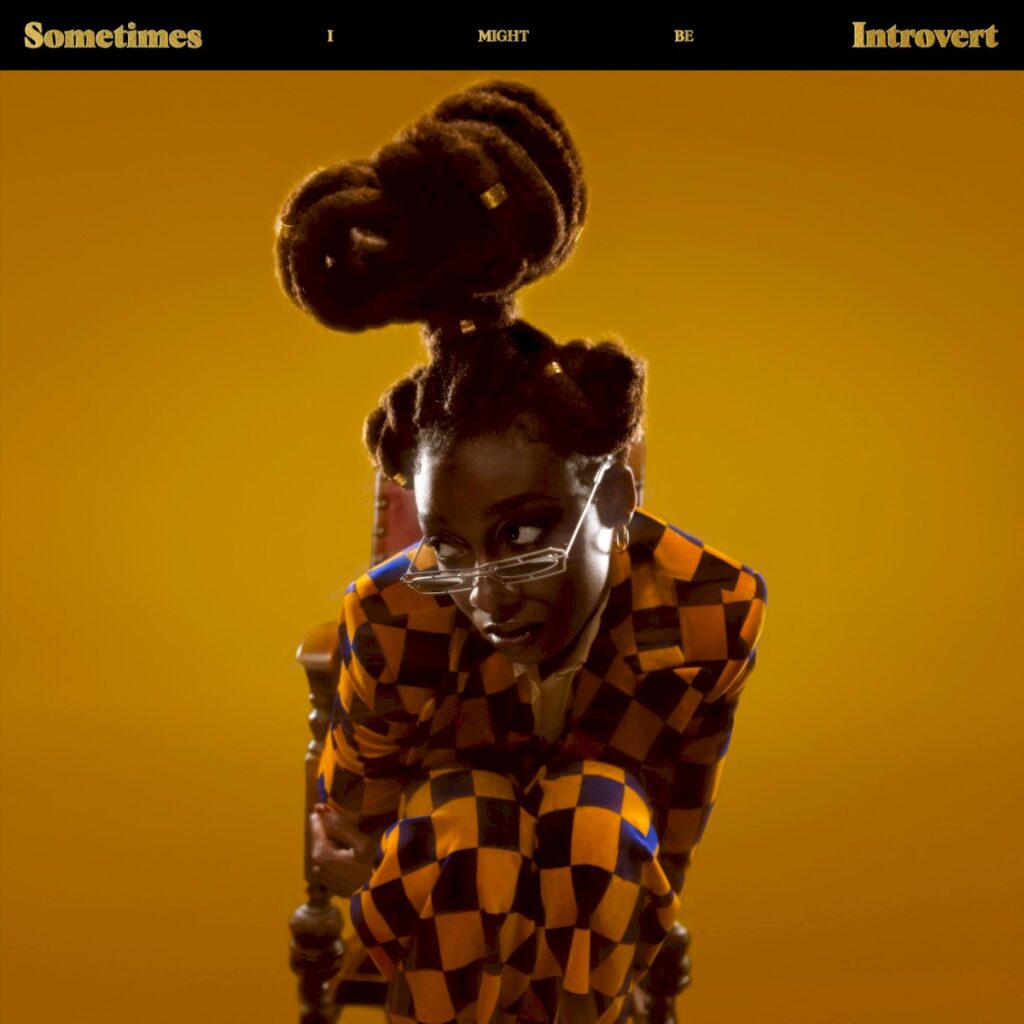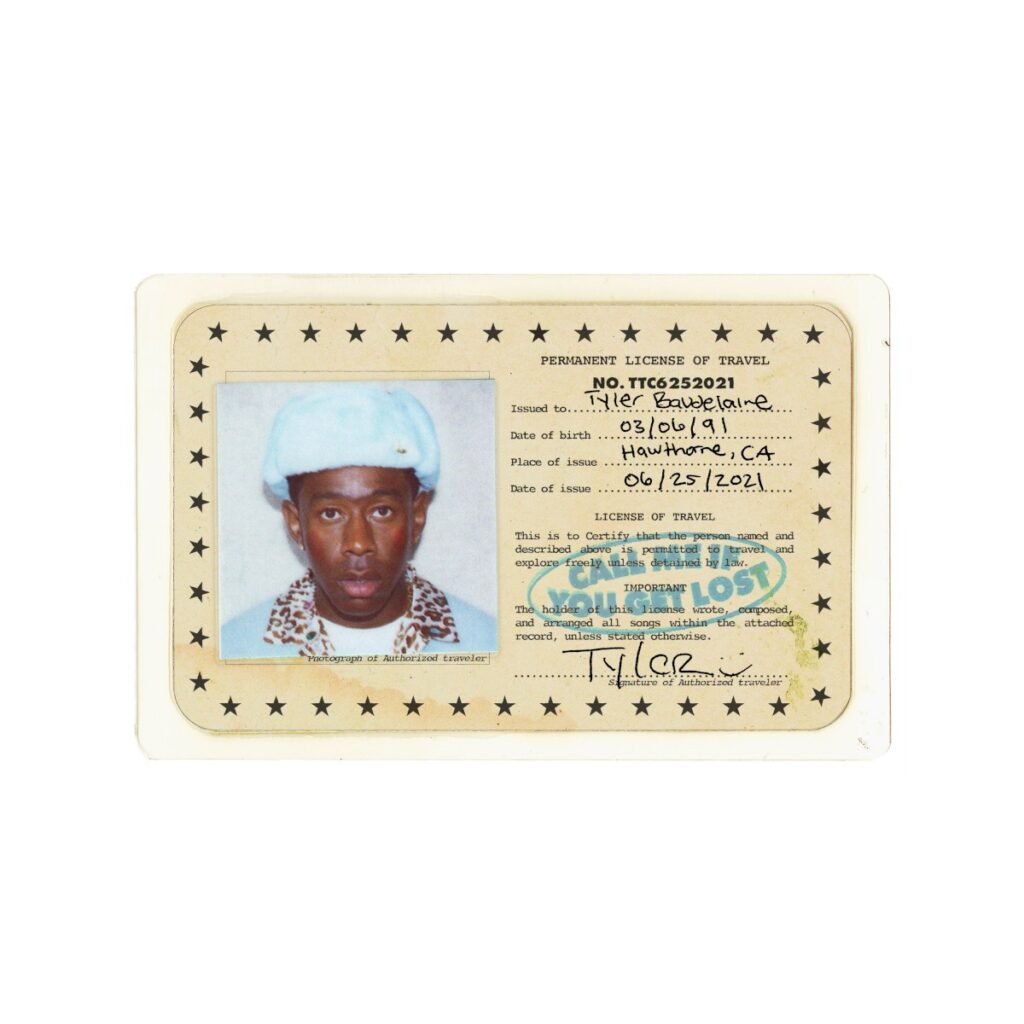Previously,
The Best 20 Albums of 2021: My Picks #20-16
The Best 20 Albums of 2021: My Picks #15-11
The Best 20 Albums of 2021: My Picks #10-6
5.
The Weather Station, ‘Ignorance’

Is it alright if I don’t wanna sing tonight?
I know you’re tired of seeing tears in my eyes
But everywhere we go there is an outside
Over all of these ceilings, hangs a sky
And it kills me when I see some bird fly
Tamara Lindeman’s project, The Weather Station, achieves a transformative leap, both sonically and thematically with their fifth studio album Ignorance. The album is a daring departure from the band’s folk origins, embracing a lush, jazz-inflected soundscape while maintaining the poignant, introspective lyricism that has always characterized Lindeman’s songwriting. At its core, Ignorance is a contemplative examination of the global climate crisis—a theme that emerged from Lindeman’s intensive research and personal activism. The album grapples with feelings of dread, anger, and hope, reflecting Lindeman’s journey through climate activism and the profound realization of the environmental apocalypse looming on the horizon. In the album opener, Robber, Lindeman channels a sense of betrayal and anger towards corporate greed and environmental degradation: “I never believed in the robber,” she admits, as the track builds into a cinematic swell of orchestration. On Tried to Tell You, Lindeman’s lyrics reflect a personal plea against moral complacency, illustrating the friction between individual responsibility and collective action. In Parking Lot, Lindeman draws an evocative parallel between a bird’s incessant song and the artist’s need to perform, despite the emotional toll it may exact. Separated tackles modern communication’s divisive effects, highlighting how digital interactions can foster both understanding and alienation. The record’s orchestral layers evoke a sense of lush, ethereal beauty, reminiscent of artists like Joni Mitchell’s jazzy collaborations and Fleetwood Mac’s sophisticated pop-rock. The incorporation of strings, flute, and saxophone adds a whimsical, avant-garde touch to the album, making tracks like Atlantic and Wear particularly memorable. Lindeman’s voice, now more assured and commanding, remains the focal point amidst these vast soundscapes. Her vocal delivery throughout Ignorance is notably dynamic, adapting seamlessly from gentle, melodic lines to more emphatic and biting inflections, placing the album at the heart of an urgent global conversation.
4.
Little Simz, ‘Sometimes I Might Be Introvert’

My speech ain’t involuntary
Project with intention straight from my lungs
I’m a black woman and I’m a proud one
We walk in blind faith not knowing the outcome
But as long as we’re unified, then we’ve already won
Little Simz’s Sometimes I Might Be Introvert is simultaneously a beacon of her unyielding ambition and a vulnerability exploratorium, underpinning her strengths and insecurities with orchestral grandeur and lyrical finesse is a sprawling, ambitious opus in contemporary hip-hop. The very title of Sometimes I Might Be Introvert is a candid pronouncement of the duality Little Simz feels as an artist: the juxtaposition between her public persona and her private self. This notion is prevalent throughout the album’s 19 tracks, where she maneuvers themes ranging from familial dynamics to societal critiques, personal confessions, and her own evolution as an artist. In this album, Simz’s lyrical dexterity seamlessly shifts from stream-of-consciousness confessions to compact epigrams. Her narratives are detailed and sensory, painting vivid pictures of socio-political issues, familial arcs, and her inner turmoil. On the track I Love You, I Hate You, she wrestles with feelings towards her estranged father, oscillating between affection and resentment. Other tracks, such as Point and Kill, in collaboration with Obongjayar, take a more celebratory tone, enriching the album’s tapestry with Afrobeat influences, showcasing her African roots. This track interlinks the personal with the communal, tapping into themes of triumph and resilience. Simz’s narrative delivery intertwines with the broader sociopolitical commentary, achieving a balanced dialectic that makes her introspective reflections universally resonant. The album’s production is dynamic, incorporating diverse musical styles that range from cinematic orchestral scores to classic hip-hop beats. From the luxuriant horn sections and string arrangements of Introvert to the retro-soul samples of Two Worlds Apart, the sonic palette of the album is both varied and cohesive. The album’s orchestral flourishes underscore the emotional weight of Simz’s lyrics, adding a layer of cinematic drama to the proceedings. On tracks like Standing Ovation, the grandiose strings and brass serve to amplify the introspective yet celebratory nature of the lyrics, creating a powerful, nearly anthemic experience.
The immortal soldiers and the fearless protest-protesters
The motivational speakers and the honest Black leaders
The divine healers, the every day low-paid believers
The overachievers in the shadow of the gatekeepers
Came down to teach us
3.
Tyler, The Creator, ‘CALL ME IF YOU GET LOST’

Tyler, The Creator has built a reputation for his adventurous, genre-defying albums that blur the lines between hip-hop, pop, soul, and jazz, and CALL ME IF YOU GET LOST, is no exception. The overarching theme of CALL ME IF YOU GET LOST is exploration—both literal and metaphorical. Tyler uses the album to traverse different life experiences, emotional landscapes, and musical genres, all while anchored by recurring motifs of travel and self-discovery. The title itself is an invitation to anyone who feels lost, not to seek comfort or guidance, but to share their adventures and achievements. This is a significant departure from the deeply confessional nature of his previous albums, Flower Boy and IGOR. The album addresses the splendors and consequences of Tyler’s success. Tracks like CORSO and BLESSED reveal his lavish lifestyle, expansive real estate portfolio, and the feelings of contentment that accompany his achievements. Yet, despite the glamorous veneer, Tyler doesn’t shy away from discussing his romantic dilemmas and existential crises, providing a raw, unfiltered look into the complexities of his life. Tyler’s lyricism on CALL ME IF YOU GET LOST is as sharp and imaginative as ever. The album’s 16 tracks feature a mix of braggadocious bars, introspective musings, and candid confessions. The song MANIFESTO, for example, tackles the double-edged sword of living in the public eye, with Tyler addressing past controversies and the pressures of societal expectations. SAFARI, the final track, brings the album to a triumphant close with Tyler recounting his globe-trotting adventures and the sense of freedom he derives from his success. Meanwhile, WILSHIRE is a nine-minute epic that details a doomed love affair with an impressive level of detail and vulnerability, pulling listeners into Tyler’s emotional labyrinth. Tyler produced the album himself, with assistance from collaborators like Jamie xx and Jay Versace. The production spans various genres, including hip-hop, pop, jazz, soul, and reggae, giving the album a rich, eclectic sound palette. DJ Drama’s presence as the album’s host cannot be overstated. His exuberant ad-libs and nostalgic references to early 2000s mixtapes add a layer of authenticity and playfulness to the project, cementing its mixtape aesthetic.
2.
Japanese Breakfast, ‘Jubilee’

In the ever-evolving landscape of indie pop, Michelle Zauner’s project Japanese Breakfast has continually proven a beacon of emotional candor and aural innovation. Jubilee, the band’s third studio album, represents a bold thematic shift from the grief-stricken tones of her prior records. Expanding the tapestry of her sound and the contours of her lyrical focus, Zauner faces a formidable challenge: capturing joy in its multifaceted essence. Jubilee emerges from a prolonged period of introspection and heartache. Following the death of Zauner’s mother in 2014, her previous albums, Psychopomp (2016) and Soft Sounds from Another Planet (2017), were imbued with sorrow and mourning. As Zauner delved into these emotions both musically and in her memoir Crying in H Mart (2021), she eventually arrived at an artistic crossroads where joy became the new frontier. The thematic arc of Jubilee centers on joy, but not in a simplistic or naive manner. Joy here is complex, intermixed with longing, dependency, and moments of existential reflection. Even amidst elation, there are layers of tension and unresolved desire, encapsulating Zauner’s multifaceted understanding of what it means to find happiness after loss. This album encapsulates a transitional ethos tinged with optimism yet grounded in the reality that joy is often accompanied by vulnerability and uncertainty.
Zauner’s lyricism in Jubilee is replete with introspective musings and vivid imagery. On Paprika, she steps into an exuberant, almost theatrical realm, wielding synths and brass in a Wes Anderson-esque carnival of sound. Tracks such as Be Sweet and Posing in Bondage explore the day-to-day intricacies of human relationships. Here, Zauner tackles themes of dependence and vulnerability, with Be Sweet serving as both a plea and a proclamation backed by vibrant 80s synths. On Posing in Bondage, her lyrics reflect a tension-filled longing for intimacy and connection that underscores the album’s dialectic of joy and need. Sonically, Jubilee is an eclectic mix that sees Japanese Breakfast expanding its palette significantly. Building on the dream pop foundations of her earlier work, Zauner incorporates elements of indie rock, chamber pop, and even future funk. The production, co-helmed by Zauner and Craig Hendrix, is lush and expansive, achieving a meticulously crafted soundscape that serves as a fitting backdrop to the album’s exploration of joy. The album’s first track, Paprika, whose layers of synthesizers, vibrant horns, and percussive elements evoke a cinematic grandiosity, sets the stage for an album rich in textural variety and vibrant contrasts. Zauner’s newfound proficiency in piano and music theory is palpable throughout the album, adding depth and sophistication to the arrangements. Tracks like Kokomo, IN feature lush, orchestral elements reminiscent of Brian Wilson, while the transition to the drum machine-driven Slide Tackle showcases Zauner’s ability to pivot between genres without losing coherence. Michelle Zauner’s ability to weave together lyrical depth, thematic richness, and diverse sonic elements has culminated in an album that feels both intimate and grand. Her journey from grief to joy is neither linear nor simple, and Jubilee mirrors this complexity by offering listeners a multi-dimensional experience of happiness touched by sorrow and wonder.
How’s it feel to be at the center of magic
To linger in tones and words?
I opened the floodgates and found
No water, no current, no river, no rush
How’s it feel to stand at the height of your powers
To captivate every heart?
Projecting your visions to strangers
Who feel it, who listen to linger on every word
Oh, it’s a rush
1.
Olivia Rodrigo, ‘SOUR’

Good for you, it’s like you’ve never even met me
Remember you swore to God that I was the only person who ever got you
Well, screw that and screw you
You will never have to hurt the way you know that I do
Olivia Rodrigo’s debut album, SOUR, is much more than a collection of teenage break-up anthems; it is an introspective diary that channels both the elegance and chaos of adolescence. Bursting onto the music scene in January 2021 with the release of the heart-wrenching single “drivers license,” Rodrigo quickly established herself not just as a pop singer, but as a compelling storyteller. With a versatile sound palette ranging from pop-punk energy to stripped-down folk balladry, SOUR is a nimble exploration of young love, loss, and the emotional upheavals that accompany them.
The concept of SOUR revolves heavily around the pains and tribulations of teenage life—primarily focusing on heartbreak, societal pressures, and the raw, unfiltered emotions that characterize youth. Rodrigo taps into the universal experiences of first love, subsequent betrayal, and the complicated landscapes of growing up in the spotlight, making use of her experiences as a Disney star to inform much of the album’s emotional depth. Songs like brutal and good 4 u encapsulate Rodrigo’s frustration with societal expectations and her attempts to carve out an authentic identity amidst external scrutiny. The opening track, brutal, with its grunge guitars and Rodrigo’s sardonic voice, blasts through the veneer of polished pop, laying bare her self-doubt and dissatisfactions. This track questions the “teenage dream” archetype, an illusion often peddled by culture and media, and immediately sets the tone for the album. On the other end of the emotional spectrum, traitor and drivers license delve into the more tender and painful dimensions of failed relationships. Rodrigo’s impassioned vocal delivery and meticulous storytelling render these tracks vivid narratives that resonate deeply with listeners, both young and old. The raw emotion in her lyrics brings forth a wave of empathy and understanding, making one relive their teenage heartbreak.
SOUR’s soundscape traverses a wide array of musical territories. The album tastefully balances Rodrigo’s pop affinities with her rock influences, creating a sonic experience that is both eclectic and cohesive. Tracks like good 4 u channel a pop-punk spirit reminiscent of early 2000s bands while still maintaining a contemporary edge. Musically, SOUR leans heavily into minimalistic arrangements that allow Rodrigo’s voice and lyrics to take the forefront. Tracks like enough for you and hope ur ok are built around simple guitar or piano lines, providing an intimate backdrop for her reflections and allowing the emotional weight of her words to fully resonate. SOUR is a daring and impressive debut that places Olivia Rodrigo firmly in the canon of pop music. It captures the zeitgeist of Gen Z while also introducing timeless themes of human experience. What makes SOUR stand apart is its willingness to venture into emotional territories that are often sanitized in mainstream pop. Rodrigo does not merely present her heartbreaks and insecurities; she dissects them with a surgical precision that is both unsettling and reassuring.
Address the letters, to the holes in my butterfly wings
Nothing’s forever, nothing is as good as it seems
And when the clouds are ironed out
And the monsters creep into your house
And every door is hard to closeWell, I hope you know how proud I am you were created
With the courage to unlearn all of their hatred
God, I hope that you’re happier today
‘Cause I love you, and I hope that you’re okay
Continue Reading:
The Best 20 Albums of 2022: My Picks
The Best 20 Albums of 2023: My Picks